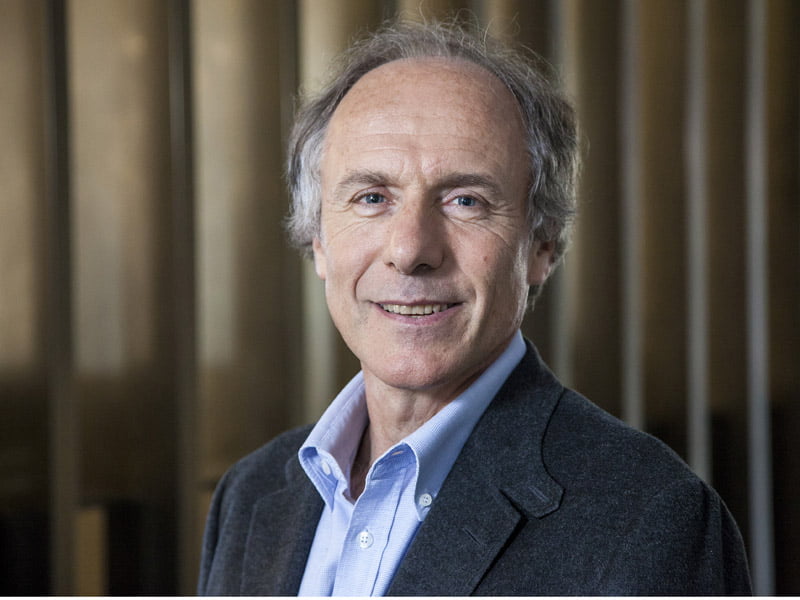The Australian government’s Special Adviser for Low Emissions Technology Dr Alan Finkel remains committed to hydrogen as an essential tool for reducing carbon dioxide emissions, despite market development being years away.
Speaking at the Australian Hydrogen Conference on Tuesday, Dr Alan Finkel called for a “laser focus” on the purpose of developing a hydrogen market, which is to reduce atmospheric greenhouse gas emissions, and the need to build demand for hydrogen.

Dr Finkel served as Australian Chief Scientist between 2016 and 2020, led the national electricity market review, development of the national hydrogen strategy, and was on the panel advising on the low emission technology roadmap.
Dr Finkel’s focus on the environmental case for hydrogen was accompanied by a call to interrogate the claims of blue hydrogen critics that it could be as bad or worse for the climate than fossil fuels over its lifetime.
“There have been papers published criticising the proposed blue hydrogen industry, however, subsequent analyses that assumed best practices for minimising upstream emissions show that blue hydrogen produced in a newly designed steam methane reforming plant powered by run of the river renewable electricity could have lower total lifecycle emissions than electrolysis of water powered by solar electricity,” Dr Finkel said.
He added that a conversation with the captain of the world’s first hydrogen tanker, who had “meticulous records”, indicated that the amount of hydrogen leaked during shipping was “remarkably low”. Dr Finkel also said that the small amount of hydrogen leaked was “automatically captured and combusted”.
He dismissed two papers published on April 8 by the United Kingdom government that suggested high hydrogen leakage rates during the production and shipping process would offset some of the climate benefits from reducing carbon dioxide emissions.
“I have to point out that the leakage rates used in this analysis were so substantial, that the hydrogen losses would be expensive, they would be dangerous, and they would be inconsistent with modern production technology,” Dr Finkel said.
Speaking about the need to develop a demand for hydrogen, he admitted that the process will take many years but that suppliers should look to an integrated solution in the near term.
“As I look at the hydrogen landscape today, I see an imbalance in supply and demand. Yes, we’ve identified many important uses for clean hydrogen, but they will not develop overnight. And that is no surprise as hydrogen is rarely a direct substitute for coal, oil, or natural gas. In many ways it is superior, but it is not one for one,” Dr Finkel said.
He highlighted that a “quick win” would be to replace the 90 million tonnes of grey hydrogen used in industry, which is produced from fossil fuels and releases carbon dioxide. This would reduce global greenhouse gas emissions by about two per cent.
But he noted that most use cases would take years to scale.
He said that replacing coke and coal with hydrogen during the production of iron would first require years to develop pilot plants and several more to “replace or upgrade the thousands of blast furnaces around the world”.
There are also around 90,000 merchant shipping vessels, which generally have a 30-year lifespan, that would need to be replaced should ammonia replace bunker fuel. A similarly lengthy development process would be needed to substitute coal for ammonia in existing electricity generators.
In the near term, Dr Finkel suggested more businesses co-locate sites of hydrogen supply with demand. This integrated solution would entail installing combined solar, wind, and hydrogen production capability adjacent to a mine, steel, or ammonia plant, for example.
Over time, hydrogen could be introduced into the production process, helping to build experience in its production and use, Dr Finkel said.
He also emphasised the importance of building consumer confidence and trust through “rigorous certification schemes”. This includes trialling methodologies developed by The International Partnership for Hydrogen and Fuel Cells in the Economy, which Australia is a part of.
In his closing statement, he declared that “Australia can and should play a key role as a reliable and trusted partner in exporting energy at scale, in the form of hydrogen and its derivatives”.
He warned suppliers to not be like Kevin Costner in the film Field of Dreams.
“Don’t assume if they build it and they will come. Instead question your assumptions and think about how to engage the end customer,” Dr Finkel said.
Do you know more? Contact James Riley via Email.

